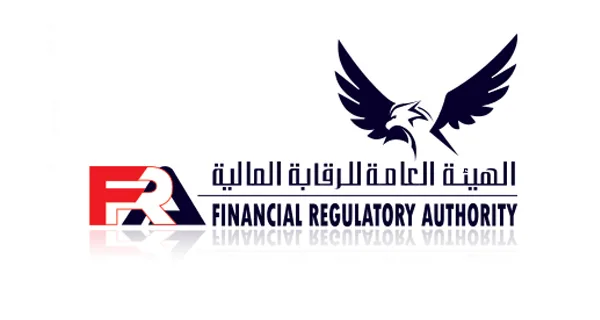The much-anticipated Consumer Finance Law has been finally approved by Parliament on 24 February 2020 and was published in the Official Gazette as Law No. 18 for the year 2020 (the “Law”) on 17 March 2020. The Law entered into force as of 18 March 2020. The enactment of the Law is a positive step in the development of the non-banking financial services field in Egypt.
Following the promulgation of the Law, the Financial Regulatory Authority (the “FRA”), which is the regulatory authority in accordance with the Law, issued Decision No. 56 for the year 2020 (the “Decision”) regulating the establishment and licensing requirements of entities wishing to engage in consumer finance activity.
We briefly outline below the main aspects of the Law and the Decision:
Scope of application
Consumer finance is defined as an activity aimed at providing financial facilities for the purpose of consumer acquisition of goods and services. The provisions of the Law do not apply to financing activities undertaken by banks subject to the supervision of the Central Bank of Egypt (the “CBE”) and activities regulated by laws governing real estate financing, financial leasing, factoring and microfinance.
The Law also does not apply to the purchase of real estate property from real estate developers.
All consumer finance activities undertaken by consumer finance companies and consumer finance providers are subject to the provisions of the Law and the supervision of the FRA.
Entities undertaking consumer finance activities
The Law differentiates between consumer finance companies established to undertake consumer finance activity and consumer finance providers who are manufacturers or distributers of goods and undertake consumer finance activity as well. A common aspect of both entities is that they are prohibited from receiving deposits. We outline below the main characteristics of both types of entities:
Consumer finance companies
In order for a company to undertake consumer finance activity it must be duly established and licensed by the FRA, as per the terms set out in the Law and the Decision.
Further, in order for a company to obtain a consumer finance activity license certain conditions must be met, including (i) the company must take the form of a joint stock company; (ii) the issued capital must be at least EGP 10 million and to be fully paid up upon incorporation; and (iii) at least 50% of the founders must be juridical entities of which 25% must be financial institutions.
The Law specifies the goods and services that can be financed by duly licensed companies, which are vehicles, durable goods, educational services, medical services, travel and tourism services and any other goods and services approved by the FRA’s board of directors.
Consumer finance companies must enter into contracts with their clients based on the template provided by the FRA. The contract must include, inter alia, the specification of the goods/services, the price of the goods/services upon purchasing and the portion to be paid by the consumer, the facility amount, the term of the facility, the number of installments, the value of each installment, the interest rate and the security provided by the consumer.
In addition, consumer finance companies can grant facilities through commercial payment cards and other payment methods approved by the CBE.
Consumer finance providers
Consumer finance providers are entities whose main activity is to manufacture, distribute and/or sell goods. According to the Law, a consumer finance provider could take the form of either a joint stock company or a limited liability company.
In case the volume of annual financings provided to consumers exceeds EGP 25 million, a license from the FRA must be obtained and the consumer finance provider must abide by all rules set out by the FRA in this regard, including, the allocation of an amount of at least EGP 10 million for consumer finance activity, having separate accounts and financials for such activity and entering into contracts with consumers as stated above.
Unlike consumer finance companies, consumer finance providers are only allowed to finance vehicles and durable goods.
General Provisions
Pursuant to the Law, a federation shall be established to include consumer finance companies and providers (the “Federation”); all entities licensed by the FRA to work in the field of consumer finance are obliged to join the Federation and to respect its by-laws. The Federation shall have an independent legal personality and is subject to the supervision and the control of the FRA.
Furthermore, one or more committees shall be established, by a decision of the FRA’s board of directors, to consider grievances filed by stakeholders from administrative decisions taken in application of the provisions of the Law.
Sanctions
According to the Law, a penalty of imprisonment and/or a fine is applied in case of (i) undertaking consumer finance activities without a license, (ii) disclosing confidential information, (iii) violating the terms of the contracts entered into with consumers or marketing and advertising regulations as stipulated in the Law, (iv) delaying the submittal of financial statements and periodic reports requested by the FRA’s board of directors, and (v) preventing FRA’s officials from performing their assigned jobs or withholding information.
With the exception of disputes and lawsuits in which the state council is competent, the economic courts are competent to adjudicate disputes and lawsuits arising from the application of the provisions of the Law.
Market reaction
In a recent statement, the Chairman of the FRA, Dr. Mohamed Omran, said that consumer finance activities being subject to the supervision of the FRA will have a positive impact on the national economy leading to an increase in investment. The Chairman further stipulated that the Law aims to protect consumers by obliging consumer finance companies and consumer finance providers to maintain complete confidentiality of clients’ information.



